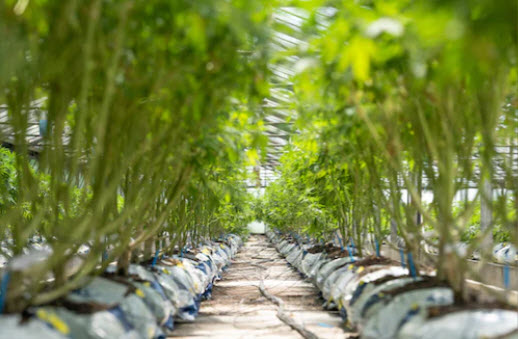After threatening to clamp down on the redlight and cannabis district in the centre of Amsterdam for years, tourists are now being banned for smoking outside of cafes starting in May 2023. What are the implications for Germany and the rest of Europe now considering recreational reform?
Amsterdam if not Holland more generally earned a well-deserved reputation beginning in the 1980’s for being a paradise if not land of liberation for those who use cannabis on a regular basis (and for whatever purpose). Those days appear now to be coming to a close with the pending ban on outdoor consumption of cannabis in the red-light district.
From mid-May, 2023, as the city council ruled in early February, sex workers will have to close shop as of 3am, restaurants and bars will have to close by 2am on weekends, new visitors to the area will be banned from the district after 1 am and smoking cannabis on the streets will be banned completely.
The move comes as Holland moves forward, inchingly, painfully, slowly, in regulating its national cannabis cultivation and distribution industry (even if for now this excludes Amsterdam and other major cities). It also comes on the eve of what is widely expected to be some kind of legislative reform of cannabis reform laws in Germany, as well as several other European countries.
What is the likely impact of Holland’s decision on such reform across Europe?
Germany Is Almost Certain to Follow Suit
No matter what may happen in Luxembourg, Malta, or Portugal, the reality is that precedent for the decision in the Netherlands is also pretty much the law in Spain no matter how grey the club industry remains. Beyond this, even if Germany includes the possibility of starting cannabis clubs, the law is likely to ban public smoking right from the start.
How effective such legislation is likely to be (not to mention enforced) is another question. With legalization it will be hard to enforce criminal statutes, but there is no reason why the government will not allow police to fine those, and with potentially hefty penalties, who decide to smoke in public places. Just like tobacco.
Is Such Regulation a “Bad” Thing?
There are many in the cannabis industry who believe that “regulation” of all kinds is bad. This includes basic public health and safety requirements (see the Delta 8 and isomer discussion more generally), certification more generally, and any kind of limit on cannabis consumption or even advertising. This is also a direct outgrowth of the influence of the state-legal market in the US where everything so far has happened on a less than federal level.
Those days are increasingly “over” there. In Europe, the industry has been far more regulated from the start.
Furthermore, it is not a “bad” thing that such restrictions are in place – anywhere. The neighbourhoods of people who live in and around popular watering holes are also directly and usually negatively effected by an unregulated industry.
And while such implicit bans are unlikely to be imposed specifically in federal German legislation (as a direct example) legislators are also likely to give municipal authorities the right to impose their own guidelines on the nascent industry.
No matter how popular cannabis reform is going to be, and no matter how overdue it is, the fact of the matter is that as the industry continues to mature, it should expect guidelines for how to operate as it normalizes.
Regulation, while it is certainly burdensome, is a fact of life in any industry and exists for a reason – namely to create standards and protect consumers. The cannabis industry is no different. And while so far, a mishmash of unreformed policy is currently creating a welter of issues for the legalizing industry, including in Europe (see CBD policy as well as Novel Food as just two of those examples), they are matters that must be addressed, not ignored. The full and unfettered normalization of the industry depends on it.








